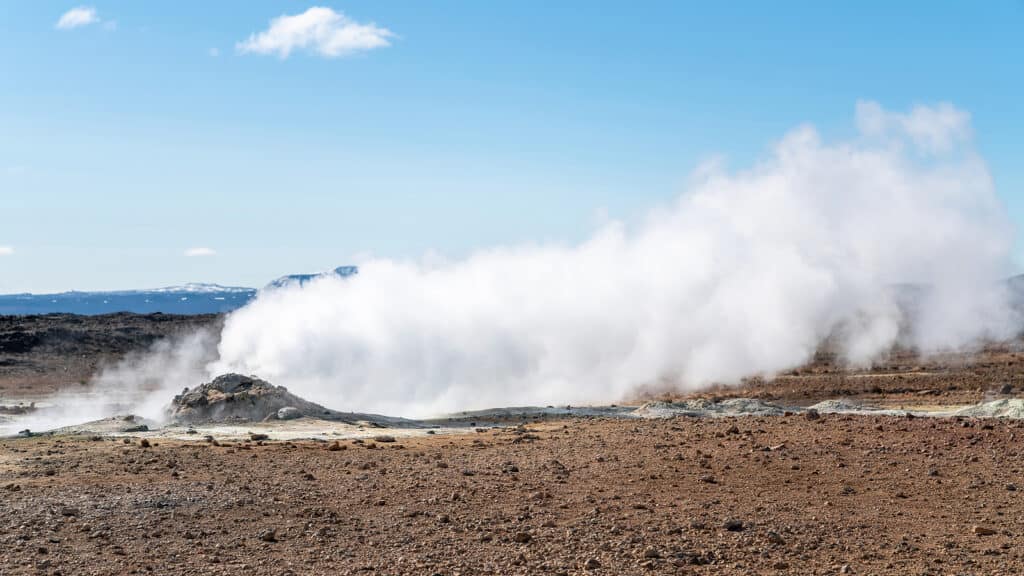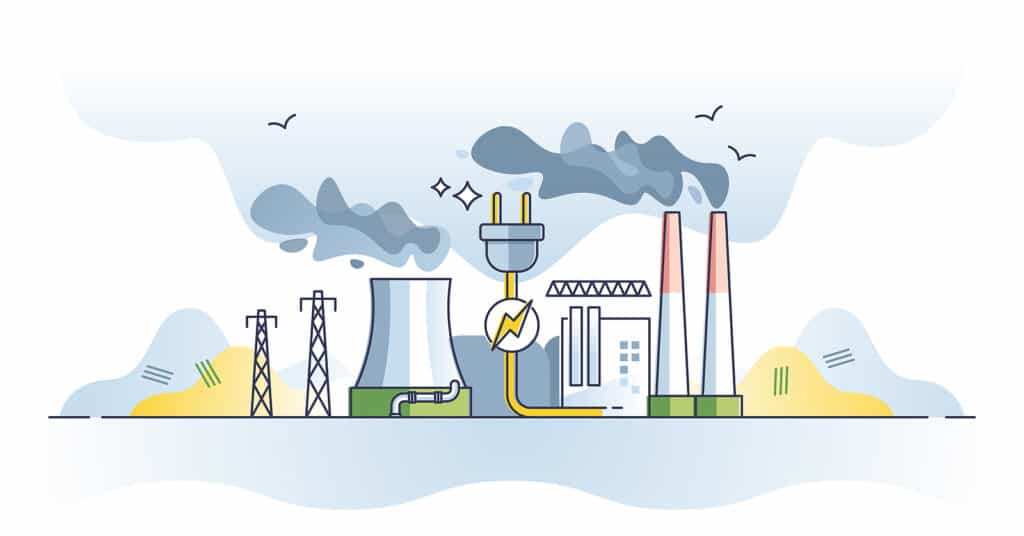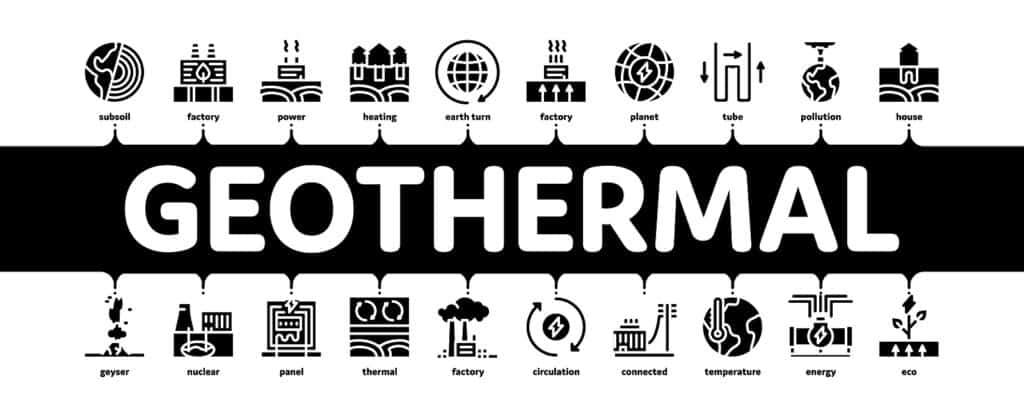Ditching the Power Company: How Harnessing Geothermal Energy Can Save You Money and Keep You Off the Grid
Are you looking to lead your company towards a more sustainable and eco-friendly future while optimizing energy usage? If so, consider harnessing the Earth's power through geothermal energy. While solar and wind power are common choices, geothermal energy often goes overlooked, despite the significant benefits it can offer. In this comprehensive guide, we will delve into the world of geothermal energy and its potential to revolutionize your company's approach to heating and hot water supply.
Imagine creating a district heating system where multiple buildings or even an entire neighborhood can be efficiently supplied with heating and hot water from a centralized geothermal plant. By embracing geothermal energy, your company can experience numerous advantages, from substantial cost savings to reducing your carbon footprint.
What is Geothermal Energy?
Geothermal energy refers to the heat that is generated and stored within the Earth's core, mantle, and crust. This heat is a product of the radioactive decay of elements within the Earth's layers and the residual heat from the planet's formation.
The Earth's core, which is made up of iron and nickel, is the hottest part of the planet, with temperatures reaching up to 5,500 degrees Celsius (9,932 degrees Fahrenheit). The heat generated within the Earth's core is conducted through the mantle and the crust, where it is released into the atmosphere or into bodies of water, such as geysers and hot springs.
For thousands of years, humans have been harnessing geothermal energy for heating and cooling purposes, especially in areas with hot springs and geysers. Today, geothermal energy is used for a wide range of purposes, including electricity generation, space heating, and industrial processes. In fact, geothermal energy is considered to be a sustainable and renewable energy source, as it is constantly replenished by the Earth's internal heat.
Unlike fossil fuels, which are finite and non-renewable, harnessing geothermal energy from volcanoes can be accessed for an indefinite period of time without depleting the planet's resources. Furthermore, geothermal energy is a clean and low-carbon source of energy, as it does not produce greenhouse gases or other harmful pollutants that contribute to climate change.

How Does Geothermal Energy Work for Homes?
At the heart of a geothermal energy system for homes is a ground-source heat pump (GSHP), which harnesses the Earth's heat by circulating a fluid through a network of underground pipes, called a ground loop. The heat is then extracted from the fluid and transferred to your home's heating and cooling systems.
There are three main types of ground loop systems:
- Horizontal loops: These systems require a large area for installation, as the pipes are laid out in trenches or coiled just below the ground's surface.
- Vertical loops: In these systems, pipes are installed vertically in deep, narrow boreholes. This is an excellent option for homes with limited outdoor space.
- Pond/lake loops: These systems use a body of water as the heat exchanger, with pipes submerged in the water. This method is highly efficient, but it requires a nearby water source.
Benefits of Geothermal Energy
Geothermal energy offers numerous advantages for homeowners:
- Lower energy bills: Geothermal systems can save you 30-60% on heating costs and 20-50% on cooling costs compared to traditional systems.
- Energy independence: By generating your own energy, you'll reduce your reliance on fossil fuels and utility companies.
- Quiet operation: Geothermal heat pumps operate silently, providing a more peaceful living environment.
- Improved comfort: These systems provide consistent temperatures and humidity levels throughout your home.
- Longevity: Geothermal systems have a long lifespan, often lasting 20-25 years or more.
Costs of Geothermal Energy Systems
While geothermal energy systems offer significant savings on energy bills, the initial investment can be substantial. The cost of installing a geothermal system varies depending on factors such as the size of your home, the type of ground loop, and your location. On average, homeowners can expect to pay between $10,000 and $30,000 for a complete system installation. However, the payback period can be as short as 5-10 years due to the energy savings and government incentives.

How to Install a Geothermal Energy System
Installing a geothermal energy system involves several steps:
- Consultation: Speak with a qualified geothermal installer to discuss your options, assess your property, and determine the best type of system for your needs.
- Design: Your installer will design a customized geothermal system tailored to your home's specific requirements.
- Permits and approvals: Before installation, you'll need to obtain any necessary permits and approvals from local authorities.
- Installation: A team of professionals will install the ground loop, heat pump, and any necessary ductwork or connections to your home's existing heating and cooling systems.
- Testing and commissioning: Once the installation is complete, your installer will test the system to ensure it's operating efficiently and safely.
Maintenance and Longevity of Geothermal Systems
Geothermal systems require minimal maintenance, making them an attractive option for homeowners. The ground loop has a lifespan of around 50 years, while the heat pump typically lasts for 20-25 years. Regular check-ups by a qualified technician every few years will help ensure optimal performance and prevent any potential issues.
Geothermal Energy and the Environment
One of the most significant benefits of geothermal energy is its minimal impact on the environment. Since it is a renewable and sustainable energy source, it doesn't contribute to greenhouse gas emissions or air pollution. Additionally, geothermal systems have a small physical footprint, leaving minimal disruption to the surrounding landscape.
Geothermal Incentives and Financing Options
To encourage the adoption of geothermal energy systems, various government incentives and financing options are available:
- Federal tax credits: Homeowners in the United States can take advantage of a federal tax credit, which covers a percentage of the cost of installing a geothermal system.
- State and local incentives: Some states and local governments offer additional tax credits, rebates, or low-interest loans for geothermal installations.
- Utility rebates: Check with your local utility company to see if they offer any rebates or incentives for geothermal system installations.
It's essential to research and take advantage of these incentives, as they can significantly reduce the upfront cost of installing a geothermal energy system.
Conclusion
Embracing the power of geothermal energy has the potential to be a game-changer for my company, as it aligns perfectly with our vision of a sustainable and eco-friendly future. The comprehensive guide has opened my eyes to the often-overlooked benefits of geothermal energy, proving that it is a viable and cost-effective solution for creating district heating systems and revolutionizing our approach to heating and hot water supply.
Geothermal energy's renewable nature and minimal environmental impact are particularly appealing, as we strive to reduce our carbon footprint and contribute positively to the planet. The prospect of lower energy bills, increased energy independence, and improved comfort for our facilities and the neighborhood it serves is highly enticing.
Sources
- U.S. Department of Energy, “Geothermal Heat Pumps.” https://www.energy.gov/energysaver/heat-and-cool/heat-pump-systems/geothermal-heat-pumps
- U.S. Environmental Protection Agency, “Geothermal Heating and Cooling Technologies.” https://www.epa.gov/rhc/geothermal-heating-and-cooling-technologies

